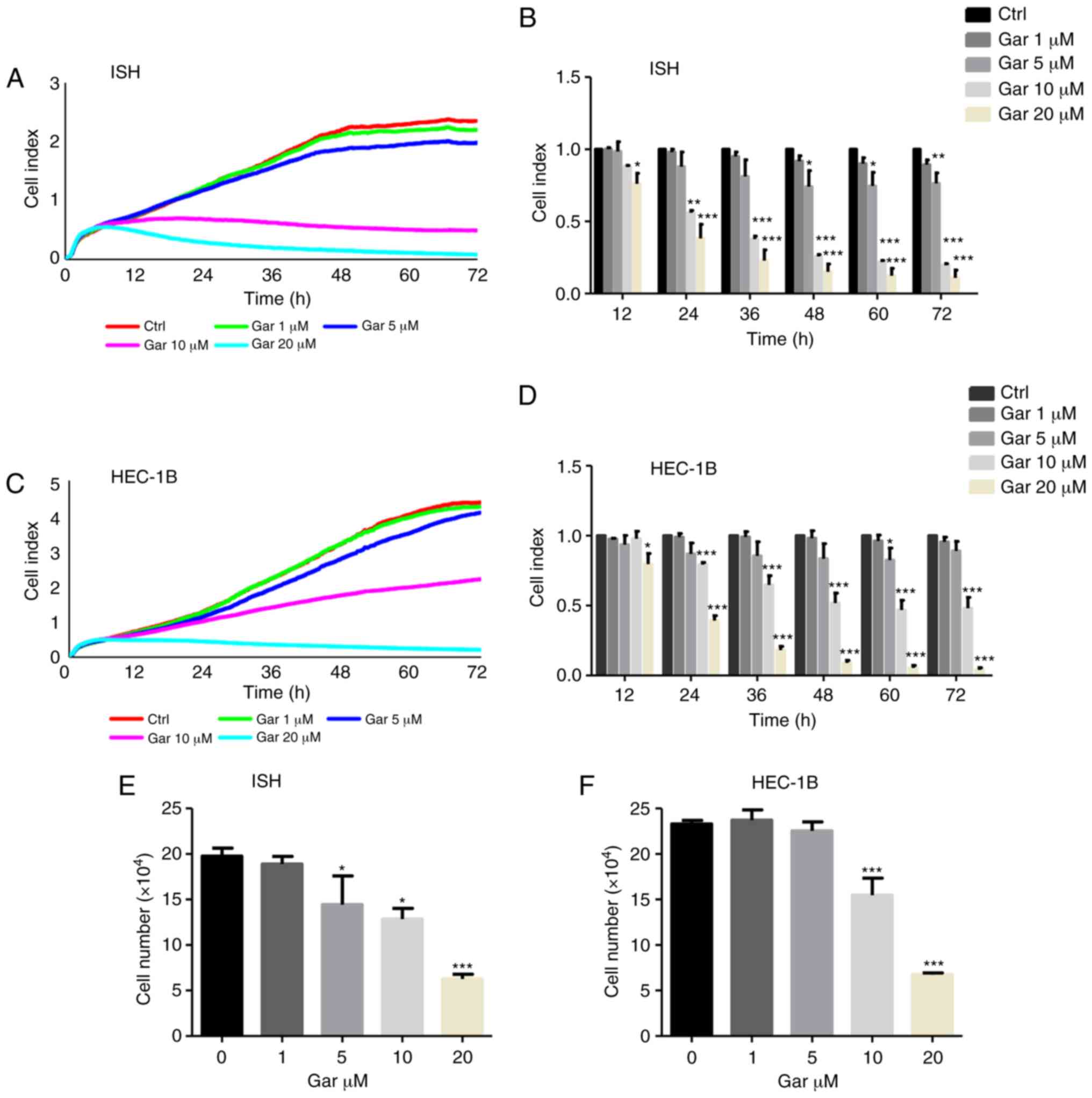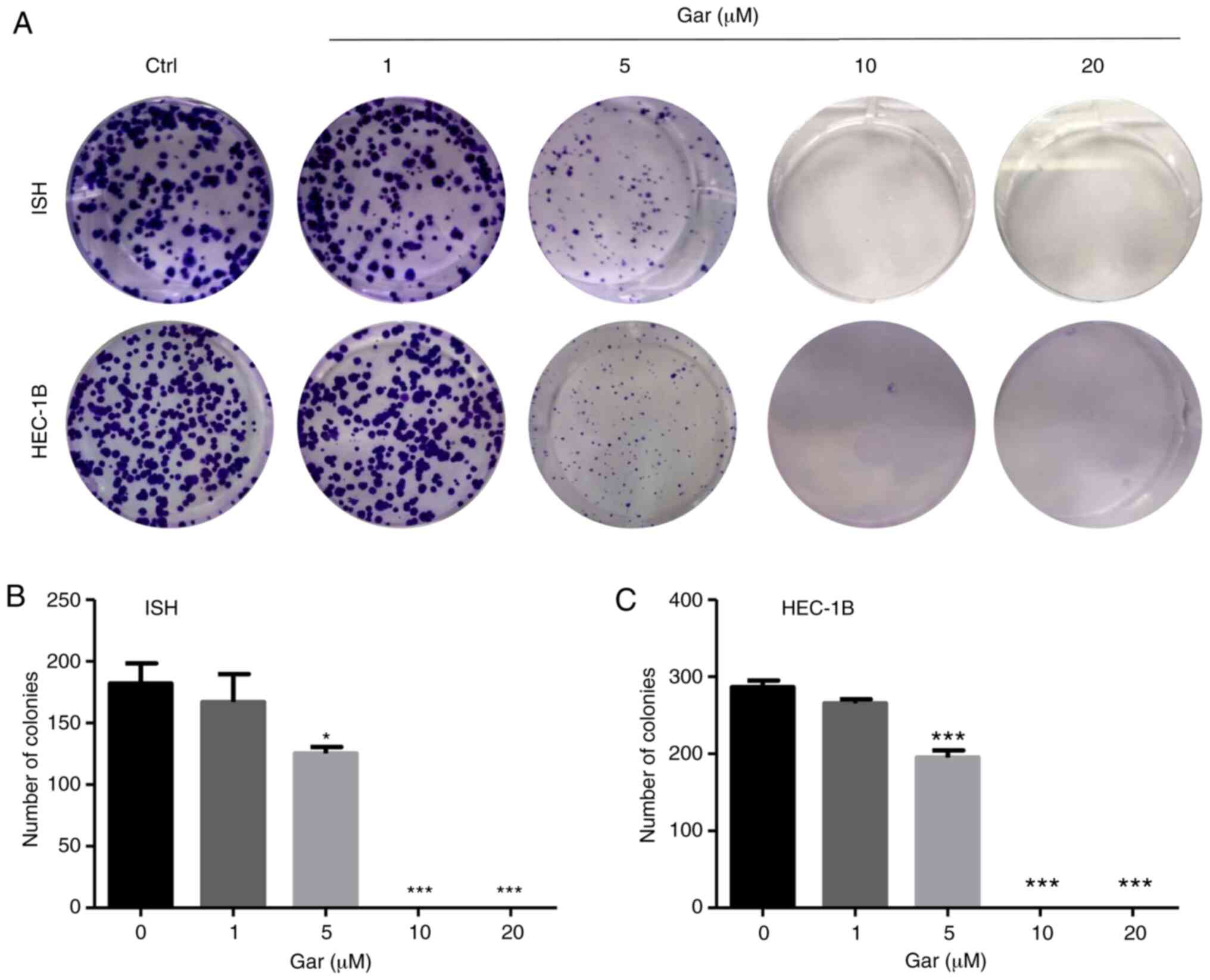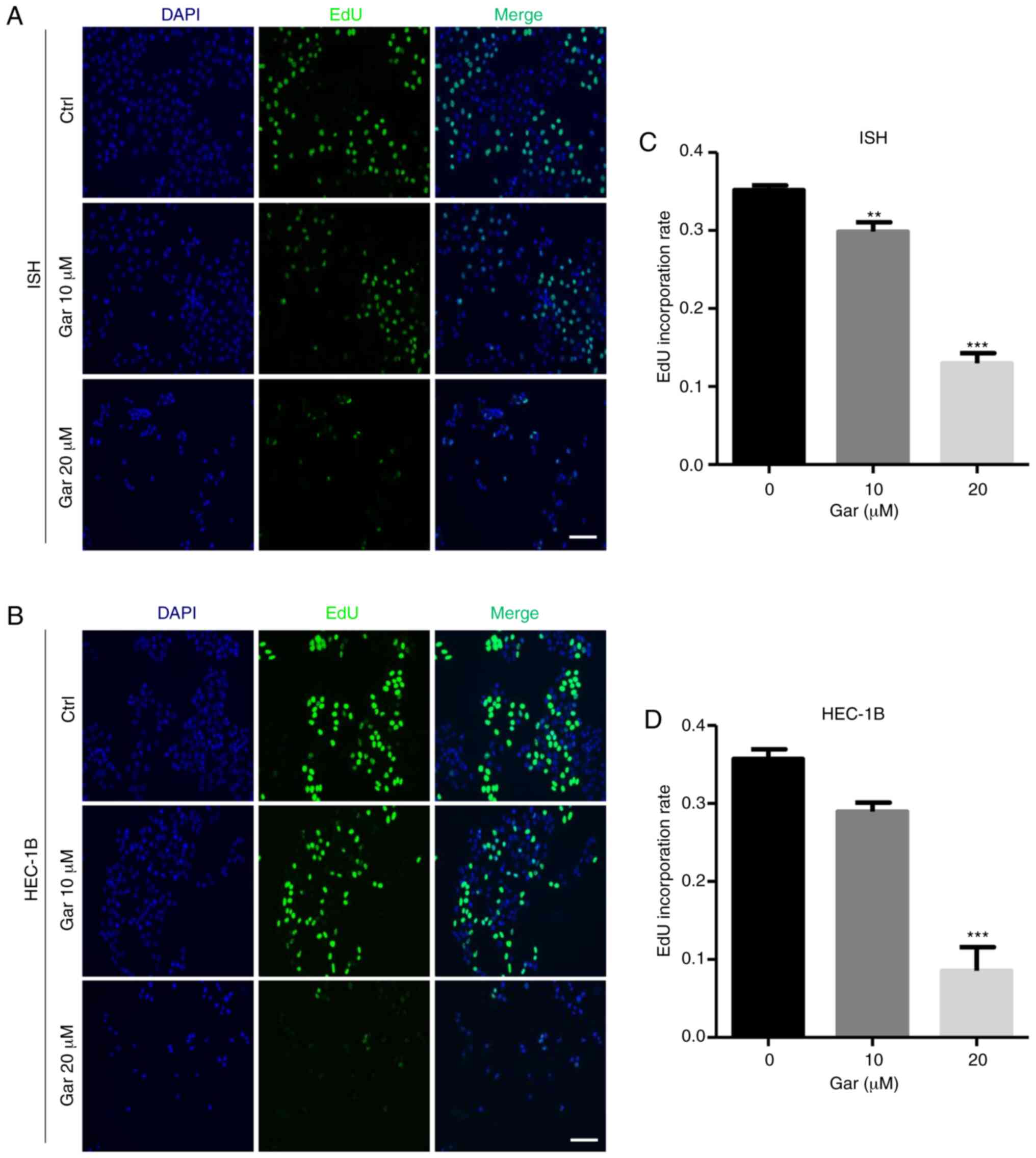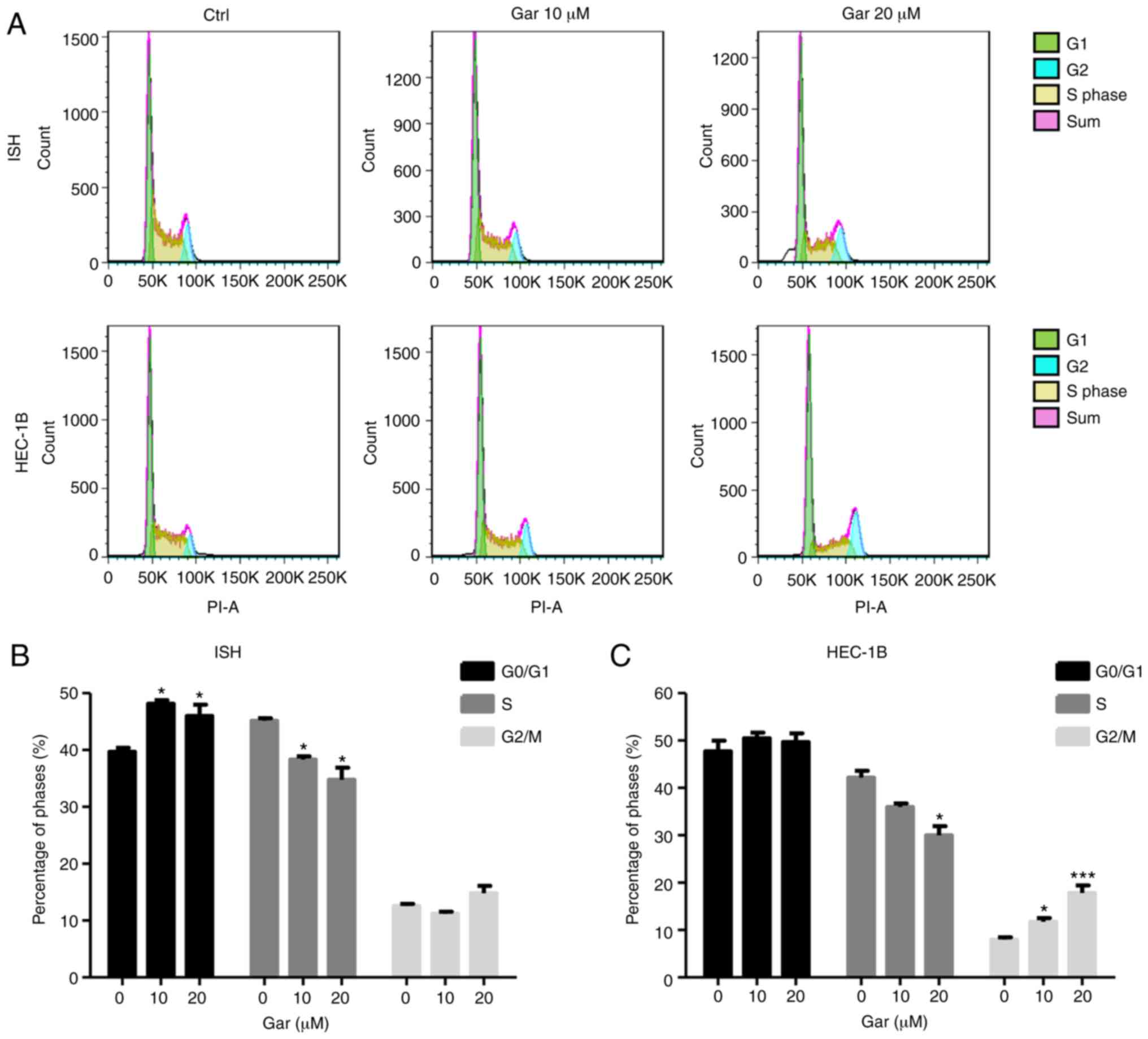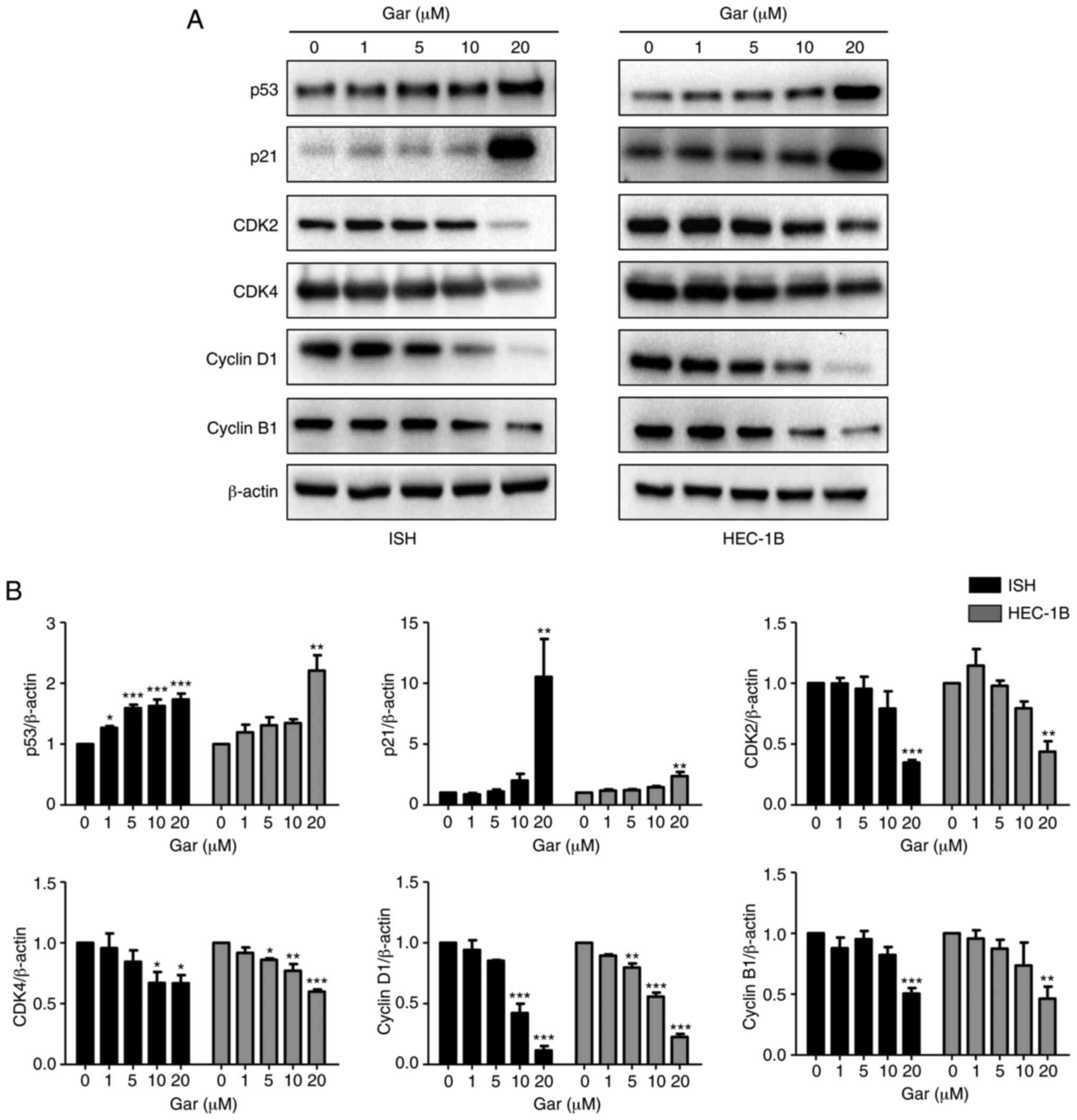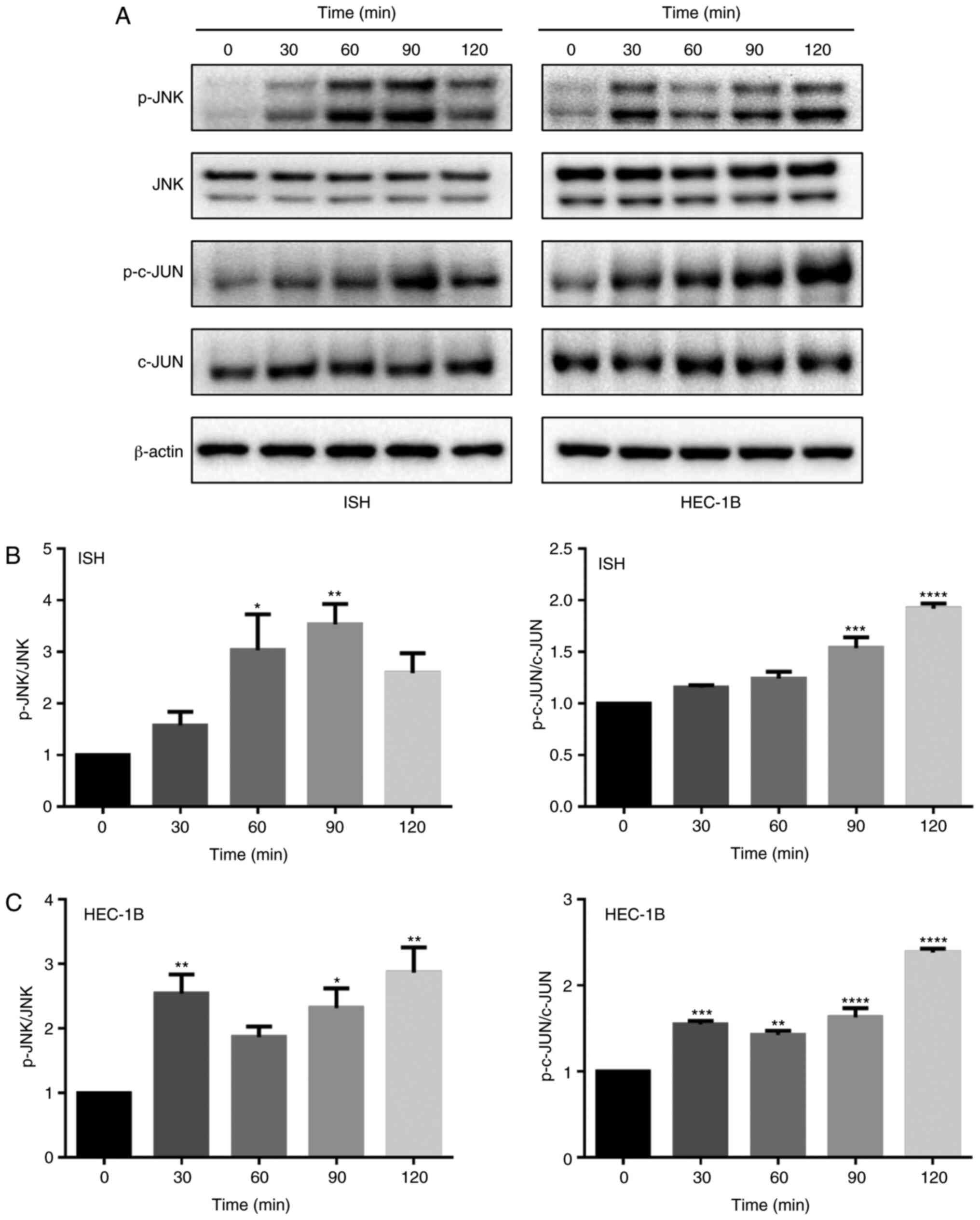|
1
|
Lee YC, Lheureux S and Oza AM: Treatment
strategies for endometrial cancer: Current practice and
perspective. Curr Opin Obstet Gynecol. 29:47–58. 2017. View Article : Google Scholar : PubMed/NCBI
|
|
2
|
Sorosky JI: Endometrial cancer. Obstet
Gynecol. 120:383–397. 2012. View Article : Google Scholar : PubMed/NCBI
|
|
3
|
Mitamura T, Dong P, Ihira K, Kudo M and
Watari H: Molecular-targeted therapies and precision medicine for
endometrial cancer. Jpn J Clin Oncol. 49:108–120. 2019. View Article : Google Scholar : PubMed/NCBI
|
|
4
|
Oza AM, Elit L, Tsao MS, Kamel-Reid S,
Biagi J, Provencher DM, Gotlieb WH, Hoskins PJ, Ghatage P, Tonkin
KS, et al: Phase II study of temsirolimus in women with recurrent
or metastatic endometrial cancer: A trial of the NCIC clinical
trials group. J Clin Oncol. 29:3278–3285. 2011. View Article : Google Scholar : PubMed/NCBI
|
|
5
|
Ushijima K: Hormonal treatment of
endometrial cancer. Nihon Rinsho. 70 (Suppl 4):388–393. 2012.(In
Japanese). PubMed/NCBI
|
|
6
|
Ito K, Utsunomiya H, Niikura H, Yaegashi N
and Sasano H: Inhibition of estrogen actions in human gynecological
malignancies: New aspects of endocrine therapy for endometrial
cancer and ovarian cancer. Mol Cell Endocrinol. 340:161–167. 2011.
View Article : Google Scholar : PubMed/NCBI
|
|
7
|
Miller KD, Fidler-Benaoudia M, Keegan TH,
Hipp HS, Jemal A and Siegel RL: Cancer statistics for adolescents
and young adults, 2020. CA Cancer J Clin. 17:Sep 17–2020.(Epub
ahead of print. doi.org/10.3322/caac.21637 2020.
|
|
8
|
Lindemann K, Eskild A, Vatten LJ and Bray
F: Endometrial cancer incidence trends in norway during 1953-2007
and predictions for 2008-2027. Int J Cancer. 127:2661–2668. 2010.
View Article : Google Scholar : PubMed/NCBI
|
|
9
|
Sung H, Siegel RL, Rosenberg PS and Jemal
A: Emerging cancer trends among young adults in the USA: Analysis
of a population-based cancer registry. Lancet Public Health.
4:e137–e147. 2019. View Article : Google Scholar : PubMed/NCBI
|
|
10
|
Jayaprakasha GK and Sakariah KK:
Determination of organic acids in leaves and rinds of Garcinia
indica (Desr.) by LC. J Pharm Biomed Anal. 28:379–384. 2002.
View Article : Google Scholar : PubMed/NCBI
|
|
11
|
Schobert R and Biersack B: Chemical and
biological aspects of garcinol and isogarcinol: Recent
developments. Chem Biodivers. 16:e19003662019. View Article : Google Scholar : PubMed/NCBI
|
|
12
|
Liu C, Ho PC, Wong FC, Sethi G, Wang LZ
and Goh BC: Garcinol: Current status of its anti-oxidative,
anti-inflammatory and anti-cancer effects. Cancer Lett. 362:8–14.
2015. View Article : Google Scholar : PubMed/NCBI
|
|
13
|
Saadat N and Gupta SV: Potential role of
garcinol as an anticancer agent. J Oncol. 2012:6472062012.
View Article : Google Scholar : PubMed/NCBI
|
|
14
|
Padhye S, Ahmad A, Oswal N and Sarkar FH:
Emerging role of Garcinol, the antioxidant chalcone from
Garcinia indica Choisy and its synthetic analogs. J Hematol
Oncol. 2:382009. View Article : Google Scholar : PubMed/NCBI
|
|
15
|
Wang L, Wang M, Guo H and Zhao H: Emerging
role of garcinol in targeting cancer stem cells of non-small cell
lung cancer. Curr Pharmacol Rep. 5:14–19. 2019. View Article : Google Scholar
|
|
16
|
Ahmad A, Sarkar SH, Aboukameel A, Ali S,
Biersack B, Seibt S, Li Y, Bao B, Kong D, Banerjee S, et al:
Anticancer action of garcinol in vitro and in vivo is in part
mediated through inhibition of STAT-3 signaling. Carcinogenesis.
33:2450–2456. 2012. View Article : Google Scholar : PubMed/NCBI
|
|
17
|
Ye X, Yuan L, Zhang L, Zhao J, Zhang CM
and Deng HY: Garcinol, an acetyltransferase inhibitor, suppresses
proliferation of breast cancer cell line MCF-7 promoted by
17β-estradiol. Asian Pac J Cancer Prev. 15:5001–5007. 2014.
View Article : Google Scholar : PubMed/NCBI
|
|
18
|
Wang J, Wu M, Zheng D, Zhang H, Lv Y,
Zhang L, Tan HS, Zhou H, Lao YZ and Xu HX: Garcinol inhibits
esophageal cancer metastasis by suppressing the p300 and TGF-β1
signaling pathways. Acta Pharmacol Sin. 41:82–92. 2020. View Article : Google Scholar : PubMed/NCBI
|
|
19
|
Zhao J, Yang T, Ji J, Li C, Li Z and Li L:
Garcinol exerts anti-cancer effect in human cervical cancer cells
through upregulation of T-cadherin. Biomed Pharmacother.
107:957–966. 2018. View Article : Google Scholar : PubMed/NCBI
|
|
20
|
Malumbres M and Barbacid M: Cell cycle,
CDKs and cancer: A changing paradigm. Nat Rev Cancer. 9:153–166.
2009. View
Article : Google Scholar : PubMed/NCBI
|
|
21
|
Malumbres M and Barbacid M: Mammalian
cyclin-dependent kinases. Trends Biochem Sci. 30:630–641. 2005.
View Article : Google Scholar : PubMed/NCBI
|
|
22
|
Massagué J: G1 cell-cycle control and
cancer. Nature. 432:298–306. 2004. View Article : Google Scholar : PubMed/NCBI
|
|
23
|
Ryu M, Sung CK, Im YJ and Chun C:
Activation of JNK and p38 in MCF-7 cells and the in vitro
anticancer activity of alnus hirsuta extract. Molecules.
25:10732020. View Article : Google Scholar
|
|
24
|
Aggarwal S and Das SN: Garcinol inhibits
tumour cell proliferation, angiogenesis, cell cycle progression and
induces apoptosis via NF-κB inhibition in oral cancer. Tumour Biol.
37:7175–7184. 2016. View Article : Google Scholar : PubMed/NCBI
|
|
25
|
Yan L, Liu X, Yin A, Wei Y, Yang Q and
Kong B: Huaier aqueous extract inhibits cervical cancer cell
proliferation via JNK/p38 pathway. Int J Oncol. 47:1054–1060. 2015.
View Article : Google Scholar : PubMed/NCBI
|
|
26
|
Yu SY, Liao CH, Chien MH, Tsai TY, Lin JK
and Weng MS: Induction of p21(Waf1/Cip1) by garcinol via
downregulation of p38-MAPK signaling in p53-independent H1299 lung
cancer. J Agric Food Chem. 62:2085–2095. 2014. View Article : Google Scholar : PubMed/NCBI
|
|
27
|
George VC, Kumar DR and Kumar RA: Relative
in vitro potentials of parthenolide to induce apoptosis and cell
cycle arrest in skin cancer cells. Curr Drug Discov Technol.
13:34–40. 2016. View Article : Google Scholar : PubMed/NCBI
|
|
28
|
Bertoli C, Skotheim JM and de Bruin RA:
Control of cell cycle transcription during G1 and S phases. Nat Rev
Mol Cell Biol. 14:518–528. 2013. View Article : Google Scholar : PubMed/NCBI
|
|
29
|
Giannone G, Tuninetti V, Ghisoni E, Genta
S, Scotto G, Mittica G and Valabrega G: Role of cyclin-dependent
kinase inhibitors in endometrial cancer. Int J Mol Sci.
20:23532019. View Article : Google Scholar
|
|
30
|
Cai Z and Liu Q: Understanding the global
cancer statistics 2018: Implications for cancer control. Sci China
Life Sci. Aug 26–2019.(Epub ahead of print). doi:
10.1007/s11427-019-9816-1. View Article : Google Scholar
|
|
31
|
Signorelli M, Lissoni AA, Cormio G,
Katsaros D, Pellegrino A, Selvaggi L, Ghezzi F, Scambia G, Zola P,
Grassi R, et al: Modified radical hysterectomy versus extrafascial
hysterectomy in the treatment of stage I endometrial cancer:
Results from the ILIADE randomized study. Ann Surg Oncol.
16:3431–3441. 2009. View Article : Google Scholar : PubMed/NCBI
|
|
32
|
Dowdy SC: Improving oncologic outcomes for
women with endometrial cancer: Realigning our sights. Gynecol
Oncol. 133:370–374. 2014. View Article : Google Scholar : PubMed/NCBI
|
|
33
|
Collins HM, Abdelghany MK, Messmer M, Yue
B, Deeves SE, Kindle KB, Mantelingu K, Aslam A, Winkler GS, Kundu
TK and Heery DM: Differential effects of garcinol and curcumin on
histone and p53 modifications in tumour cells. BMC Cancer.
13:372013. View Article : Google Scholar : PubMed/NCBI
|
|
34
|
Hsu CL, Lin YJ, Ho CT and Yen GC:
Inhibitory effects of garcinol and pterostilbene on cell
proliferation and adipogenesis in 3T3-L1 cells. Food Funct.
3:49–57. 2012. View Article : Google Scholar : PubMed/NCBI
|
|
35
|
Qu W, Zhao Y, Wang X, Qi Y, Zhou C, Hua Y,
Hou J and Jiang SW: Culture characters, genetic background,
estrogen/progesterone receptor expression, and tumorigenic
activities of frequently used sixteen endometrial cancer cell
lines. Clin Chim Acta. 489:225–232. 2019. View Article : Google Scholar : PubMed/NCBI
|
|
36
|
Lim W, Jeong M, Bazer FW and Song G:
Coumestrol inhibits proliferation and migration of prostate cancer
cells by regulating AKT, ERK1/2, and JNK MAPK cell signaling
cascades. J Cell Physiol. 232:862–871. 2017. View Article : Google Scholar : PubMed/NCBI
|
|
37
|
Kumar A, Singh UK, Kini SG, Garg V,
Agrawal S, Tomar PK, Pathak P, Chaudhary A, Gupta P and Malik A:
JNK pathway signaling: A novel and smarter therapeutic targets for
various biological diseases. Future Med Chem. 7:2065–2086. 2015.
View Article : Google Scholar : PubMed/NCBI
|
|
38
|
Sebolt-Leopold JS and Herrera R: Targeting
the mitogen-activated protein kinase cascade to treat cancer. Nat
Rev Cancer. 4:937–947. 2004. View Article : Google Scholar : PubMed/NCBI
|
|
39
|
Cuadrado A, Garcia-Fernandez LF, Gonzalez
L, Suarez Y, Losada A, Alcaide V, Martinez T, Fernandez-Sousa JM,
Sanchez-Puelles JM and Munoz A: Aplidin induces apoptosis in human
cancer cells via glutathione depletion and sustained activation of
the epidermal growth factor receptor, Src, JNK, and p38 MAPK. J
Biol Chem. 278:241–250. 2003. View Article : Google Scholar : PubMed/NCBI
|
|
40
|
Yu C, Rahmani M, Almenara J, Sausville EA,
Dent P and Grant S: Induction of apoptosis in human leukemia cells
by the tyrosine kinase inhibitor adaphostin proceeds through a
RAF-1/MEK/ERK- and AKT-dependent process. Oncogene. 23:1364–1376.
2004. View Article : Google Scholar : PubMed/NCBI
|
|
41
|
Harvey M, Sands AT, Weiss RS, Hegi ME,
Wiseman RW, Pantazis P, Giovanella BC, Tainsky MA, Bradley A and
Donehower LA: In vitro growth characteristics of embryo fibroblasts
isolated from p53-deficient mice. Oncogene. 8:2457–2467.
1993.PubMed/NCBI
|
|
42
|
Chen J: The cell-cycle arrest and
apoptotic functions of p53 in tumor initiation and progression.
Cold Spring Harb Perspect Med. 6:a0261042016. View Article : Google Scholar : PubMed/NCBI
|
|
43
|
Martín-Caballero J, Flores JM,
García-Palencia P and Serrano M: Tumor susceptibility of
p21(Waf1/Cip1)-deficient mice. Cancer Res. 61:6234–6238.
2001.PubMed/NCBI
|
|
44
|
Taylor WR and Stark GR: Regulation of the
G2/M transition by p53. Oncogene. 20:1803–1815. 2001. View Article : Google Scholar : PubMed/NCBI
|
|
45
|
Balasubramanyam K, Altaf M, Varier RA,
Swaminathan V, Ravindran A, Sadhale PP and Kundu TK:
Polyisoprenylated benzophenone, garcinol, a natural histone
acetyltransferase inhibitor, represses chromatin transcription and
alters global gene expression. J Biol Chem. 279:33716–33726. 2004.
View Article : Google Scholar : PubMed/NCBI
|
|
46
|
Wang YW, Zhang X, Chen CL, Liu QZ, Xu JW,
Qian QQ, Li WY and Qian YN: Protective effects of Garcinol against
neuropathic pain-evidence from in vivo and in vitro studies.
Neurosci Lett. 647:85–90. 2017. View Article : Google Scholar : PubMed/NCBI
|
|
47
|
Dunbar AB and Taylor JR: Garcinol blocks
the reconsolidation of multiple cocaine-paired cues after a single
cocaine-reactivation session. Neuropsychopharmacology.
42:1884–1892. 2017. View Article : Google Scholar : PubMed/NCBI
|
|
48
|
Hao F, Jia LH, Li XW, Zhang YR and Liu XW:
Garcinol upregulates GABAA and GAD65 expression, modulates
BDNF-TrkB pathway to reduce seizures in pentylenetetrazole
(PTZ)-induced epilepsy. Med Sci Monit. 22:4415–4425. 2016.
View Article : Google Scholar : PubMed/NCBI
|
|
49
|
Weng MS, Liao CH, Yu SY and Lin JK:
Garcinol promotes neurogenesis in rat cortical progenitor cells
through the duration of extracellular signal-regulated kinase
signaling. J Agric Food Chem. 59:1031–1040. 2011. View Article : Google Scholar : PubMed/NCBI
|
|
50
|
Li W, Li H, Zhang M, Zhong Y, Wang M, Cen
J, Wu H, Yang Y and Wei Q: Isogarcinol extracted from Garcinia
mangostana L. ameliorates systemic lupus erythematosus-like
disease in a murine model. J Agric Food Chem. 63:8452–8459. 2015.
View Article : Google Scholar : PubMed/NCBI
|
|
51
|
Cui ZL, Gu W, Ding T, Peng XH, Chen X,
Luan CY, Han RC, Xu WG and Guo XJ: Histone modifications of Notch1
promoter affect lung CD4+ T cell differentiation in asthmatic rats.
Int J Immunopathol Pharmacol. 26:371–381. 2013. View Article : Google Scholar : PubMed/NCBI
|















